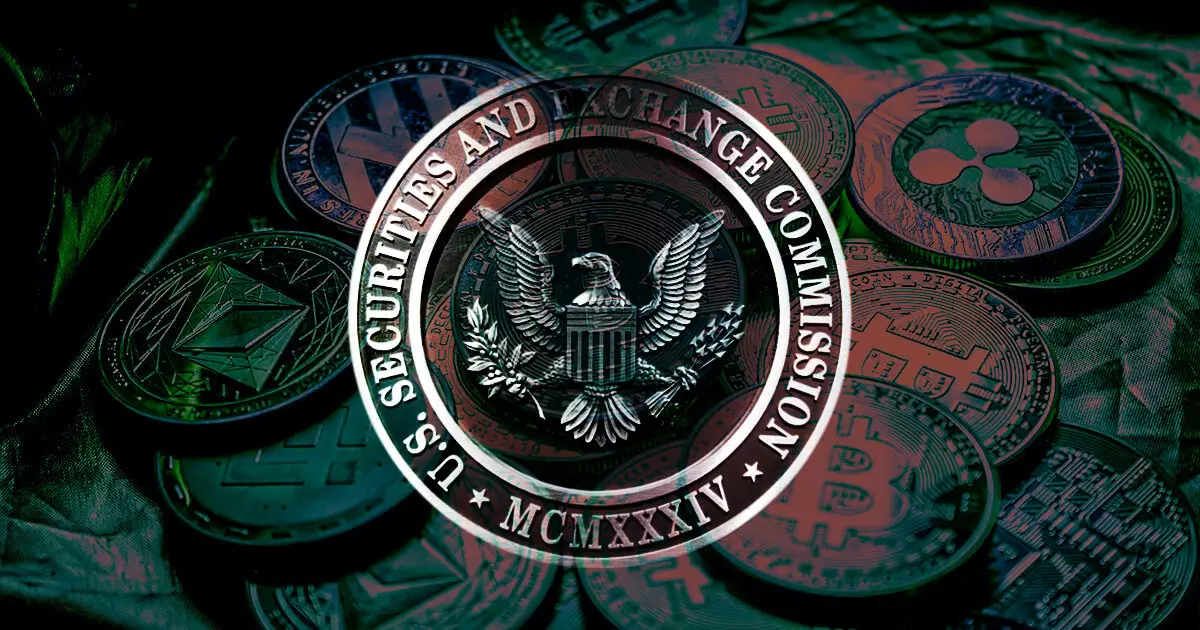As the cryptocurrency world continues to evolve, regulatory bodies such as the U.S. Securities and Exchange Commission (SEC) find themselves amid a tug-of-war between innovation and investor protection. A pivotal event is on the horizon as the U.S. Senate Banking Committee prepares to vote on the renomination of Caroline Crenshaw, a Democrat commissioner at the SEC notorious for her stringent views against cryptocurrencies. This decision is not just a routine reappointment; it stands to have significant repercussions for the future of digital currencies and the broader fintech landscape.
Caroline Crenshaw was sworn in as an SEC commissioner in August 2020 and has since garnered notoriety for her critical stance on various cryptocurrency-related initiatives. In January, she was one of only two SEC commissioners who voted against approving spot Bitcoin exchange-traded funds (ETFs), a moment that underscored her commitment to scrutiny on crypto offerings. In her dissenting letter, Crenshaw articulated concerns about the potential failures in investor protection, describing the approval process as “unsound and ahistorical.” Such language resonates deeply with industry proponents who view the SEC’s regulations as overly cautious.
According to analysis from Bloomberg ETF expert James Seyffart, Crenshaw represents an even more aggressive anti-crypto stance than SEC Chair Gary Gensler, who himself is regularly criticized for his regulatory approaches. This creates an uneasy climate for the crypto community, where calls for clarity, support, and innovation are met with resistance from key regulatory figures.
The cryptocurrency community’s discontent with Crenshaw’s possible renomination is palpable and multifaceted. Emilie Choi, the president and COO of Coinbase, took to social media to express her frustration, labeling Crenshaw as “anti-crypto” and recalling her opposition to Bitcoin ETFs. This sentiment echoes through various channels, with stakeholders in the crypto space alarmed about the ramifications of an extended Crenshaw tenure at the SEC.
Industry experts highlight that if Crenshaw continues in her role, it could signal a discouraging atmosphere for innovation and investment in digital assets. Alexander Grieve of Paradigm referred to the imminent vote as one last ‘gift’ from retiring Banking Committee Chair Sherrod Brown, insinuating that the decision could be a last-ditch effort to solidify a status quo that many crypto proponents find untenable.
As the vote approaches, political dynamics complicate the narrative further. Should Crenshaw’s confirmation occur, she would remain at the SEC until 2029, an uncomfortably long period from the perspective of pro-crypto advocates who crave a more favorable regulatory environment. However, should she fail to earn the Senate’s endorsement, it opens the door for President-elect Donald Trump to nominate a replacement potentially more sympathetic to the digital asset community.
Recently, Trump appointed Paul Atkins, a former SEC commissioner known for his pro-crypto advocacy. This appointment has instilled hope within the crypto industry, with promises of a more lenient and market-friendly approach to regulation. Atkins’ track record suggests a focus on investor protection without stifling innovation, marking a potential turning point in how cryptocurrencies are governed in the U.S.
As the Senate Banking Committee prepares for its decisive vote on Caroline Crenshaw’s renomination, the implications for the cryptocurrency ecosystem are profound. If retained, Crenshaw’s ascendant influence could maintain an adversarial climate toward digital assets, leaving investors and innovators in a precarious position. Conversely, a shift towards Atkins could signal a more accommodating regulatory framework, fostering the growth of the crypto industry.
In an environment marked by emerging technologies and evolving consumer behaviors, the path regulators choose to take will not only shape the future of cryptocurrencies but also the broader financial landscape. Thus, industry stakeholders are left to ponder the ultimate question: will the future of cryptocurrencies be governed by caution and control, or by innovation and opportunity? This debate is just beginning, and its outcome remains uncertain.

